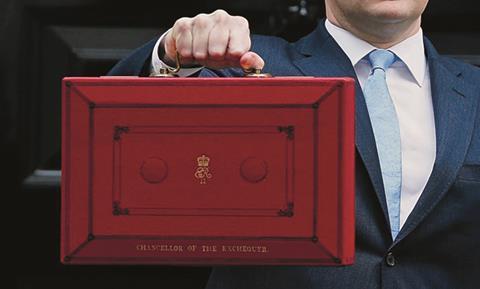Editor: This week, the chancellor of the exchequer will announce his Autumn Budget. Given the government’s ‘Build Back Better’ agenda, we expect that the real estate sector will not be ignored.

The property industry has not been uniformly affected by the pandemic – residential property and logistics in particular have performed strongly on one hand, while retail, hospitality and leisure properties have been hit hardest. What’s more, with COP26 starting just a few days after the Autumn Budget, we can expect an emphasis on policies and initiatives that support the UK’s ambition to be a leader in this space.
Against this backdrop, we’re likely to see policies that reflect both the industry’s need for support and the government’s long-term commitments to positive social and environmental change.
So, what can we expect?
On the international stage, we anticipate further reform to the UK REIT regime to make the UK a more attractive market for international investors. Inbound investment is a significant pillar of both the post-Brexit and post-Covid recovery strategies. Any reforms will be combined with wider AHC consultation and designed to encourage the broader use of REITs and make the UK a more attractive home for funds.
Looking closer to home, there is no doubt that the high street is still struggling. While footfall has picked up in line with lockdown restrictions easing, businesses are now facing new challenges with supply chain disruption, labour shortages and inflation, as well as questions about the long-term future of bricks-and-mortar retail. It is likely that the chancellor will combine incentives to regenerate the UK’s high streets with initiatives to create more vibrant town and city centres, with a focus on sustainable mixed-use developments and retail repurposing. Incentives are expected to be in the form of specific tax relief but could also include an extension to the Annual Investment Allowance, which is due to end on 31 December 2021.
There will be relief for occupiers, too. We may well see more specific measures to support the hardest-hit sectors, including extending lower VAT rates, as well as recruitment and training incentives to support these businesses. An update on business rates is also due, which could provide some welcome relief to tenants and landlords, although the more fundamental change that is needed may be pushed further down the road.
We will also see questions that pre-date the pandemic returning to the government agenda. This includes the highly anticipated Residential Property Development Tad (RPDT), which aims to ensure that residential property developers fund the removal or remediation of cladding. The chancellor is expected to clarify which developers this will apply to and the rates they will pay. He may also commit to more funding for the Building Safety Fund, established to replace unsafe cladding.
In conjunction with changes to capital gains tax and business rates, these policy updates should be a fillip for the property sector. A boost to foreign investment and support for the high street should help the industry bounce back from the pandemic, while important issues like safety and ESG will return to centre stage.
Kersten Muller, managing director of real estate, Financial Investors Group, Alvarez & Marsal





























No comments yet